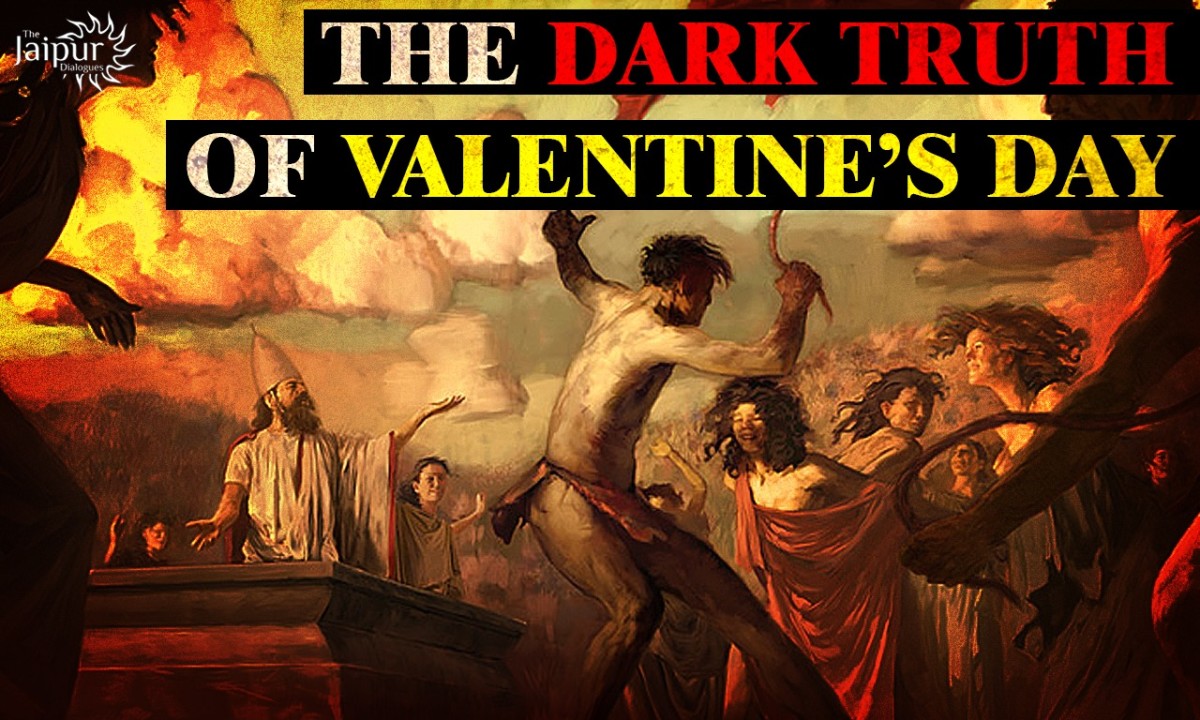Valentine's Day And The Internet: Too Much Of A Good Thing?

A holiday named for saint Valentinus, Valentine’s day has always been a time ripe with joy and love– not necessarily of a carnal sort, but with the Romans and the technophiles of today’s world, that particular quality has not been overlooked. We’ve certainly come a long way since those ancient days of gladiator pits and public orgies; we no longer beat each other with bloody strips of goat-hide and pair off for a year and a day with a random partner. Instead, a majority of Americans turn to the internet, where the wide availability of services that crop up especially for Valentine’s day make a delivery of flowers and chocolates just as quick, easy, and inexpensive as a delivery of leather straps and edible underwear.
Much like Christmas and Independence day, (As it as observed in the United States, and certainly other countries as well,) Valentine’s day has become incredibly commercialized. Businesses and eager entrepreneurs scheme for months in advance, trying to find that profitable niche that could have been missed by the thousands upon thousands of profiteers that have come before. Hordes of merchants appear seemingly out of nowhere, offering an incredible array of products, clambering over one another in an intense competition of wit, daring, and product placement. With the infinite expanse of the world wide web as their battleground, they descend upon the millions of consumers like so many droves of hungry vultures, cutting prices, bidding for advertising space, and pulling in the weak with sugary promises of “the perfect Valentine’s day.” Just look around, their products and services are everywhere! Electronic greeting cards, from the cheap and mundane to the sensuous and moving, ready-made poetry and songs, love-based zodiac predictions, romantic clip-art, stationary and paperweights just to name a few. Flower delivery is also an incredible hit during this season, both next-day and date-specific, but why stop there when you can send that “special someone” some sexual games or some “naughty” trivia. Holiday themed clothing is also available online, from lounge shirts to men’s ties, and everything in between- if you look hard enough. And if those don’t tickle your fancy, there’s always a healthy supply of Valentines day coin purses, gel candles, jeweled shoe figurines, party decorations, drink recipes, songs, books, films, and romance guides for the able lover. You can even buy sugar free & low carb gourmet cookie tins, gigantic heart-sprinkled fortune cookies, chocolate and cookie roses, romantic bottled messages, homestyle Valentine’s day rugalach or, if you’re looking for an exciting and “stellar” gift that’s sure to impress, you can even have a star named after your Valentine for less than thirty American dollars. But if none of that’s up your alley, there’s even a market for “Anti-Valentine’s day” merchandise, allowing people to send that “special someone” a little something that’s far less than traditional.
What is traditional, however, is the fact that, as with everything else online, Valentine’s day has it’s darker side; literally dozens of anti-valentine’s day sites cling to existence in the reaches of the ‘net. Some of these are merely bitter rants and heart-broken blog-heaps, but others feature authors who tout ideals of freedom and sentimentality, claiming that Valentine’s day is far too commercialized and that it represents how capitalism is forcing it’s way into our hearts and minds, telling us how to feel and when to feel it. As the author behind “Be My Anti-Valentine” so eloquently put it: “it's your right and your duty to question and keep questioning the motives of anyone who tries to influence you or your wallet.” These are the brave souls that cannot be discounted as lonely and lovesick recluses, sour with heartbreak and emotional scar-tissue, no, these are the few who dare to go against the unyielding flow of society, to step back from what cultural conditioning has told us to do and believe, in the interest of casting the light of reason upon the programmed responses of the people who make up an all but homogenized culture.
But is the internet at fault if the original morals and ideas behind Valentine’s day have truly gone totally and completely out of the window, replaced by the cash-fisted ideals of corporate consumerism? No, the internet is merely an extension, an expansion of product availability, if you will, that grew out of what many believe to be a far older problem, one that stems from a time just before the end of the eighteenth century, when traditional Valentines, among other things, such as sacred texts and manuscripts, were first mass produced. Even before improvements in printing technology allowed the quick and easy production of paper and card Valentines, The holiday was a widely celebrated tradition both in Great Britain and the Americas, but the invention of the Valentine, as we know it today –little cards and notes manufactured and sold in bulk quantities– seemed to bring a certain commercial feeling to the holiday, a cheapening, as it were. From there, technological advances allowed a host of new products to appear on the market, supplemented by the dozens of companies who design, and have designed new varieties of Valentine’s cards in an attempt to break into a market that is heavily dominated by a handful of older and more powerful greeting card manufacturers. Now, it is estimated that over a billion Valentine’s day cards –just the greeting card variety sent through the mail across the globe– are purchased each year. Billions more of the smaller, more common varieties are handed out personally, most of those in American classrooms, while candy and flower deliveries skyrocket suddenly right around the holiday itself. And yet, none of these figures even touch the massive market for electronic greeting cards that sees an incredible influx of cash right around each holiday; Valentine’s day is the second most lucrative holiday for businesses, right behind Christmas.
To say the least, Valentine’s day has been irreparably changed, first by improvements in printing technology, and later by the internet. The web’s inherent utility and endless potential for growth has created a merchant’s, if not a shopper’s paradise, not just around this holiday, but around many others as well. It has allowed thousands of young, intrepid businessmen out to make a quick buck and an easy fortune to thrive, to offer products that cling to the theme of a specific event or holiday while catering to the desires of the greater body of the world’s population, specific groups and cross-sections of society, or in some cases, the very individuals therein. Valentine’s day’s imagery, of cupid, hearts, and loving couples is firmly ingrained into the very fabric of western society to the point of creating an almost unconscious need to celebrate the holiday. The endless market of the internet, bolstered by a strong corporate influence, has grown to cater to the desires of anyone with a credit card or a money order, creating a holiday-themed pit of slavering entrepreneurs offering thousands of products and services to satiate the fetishes of the masses, from the subtle to the gross.








